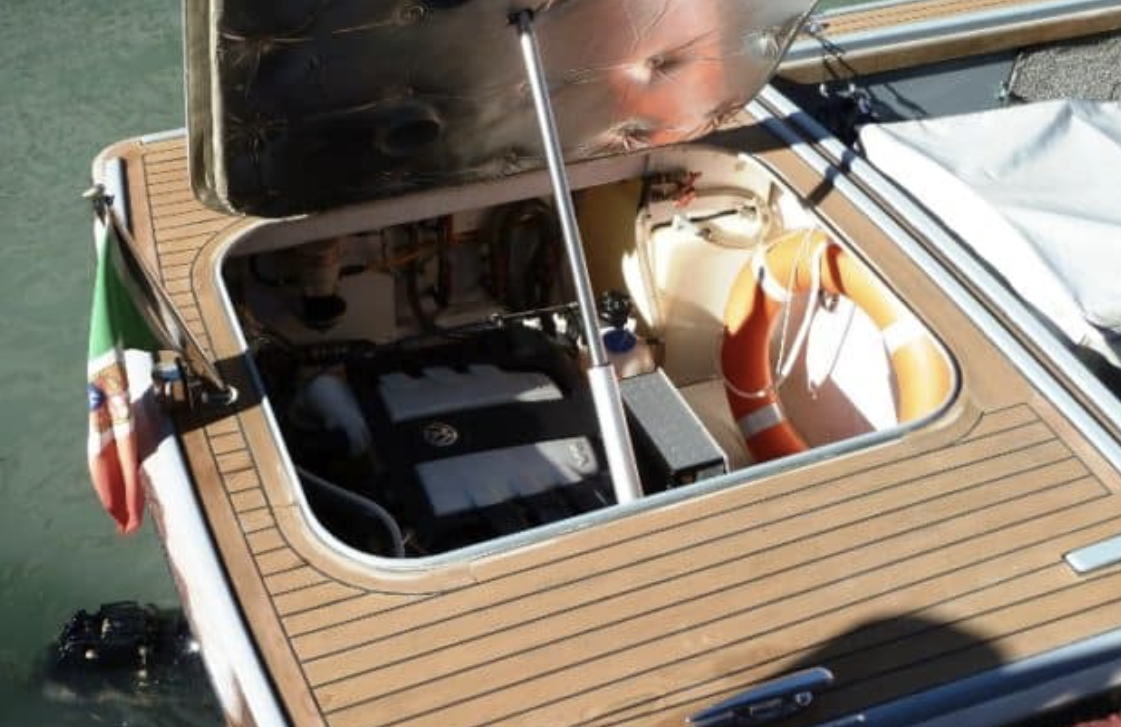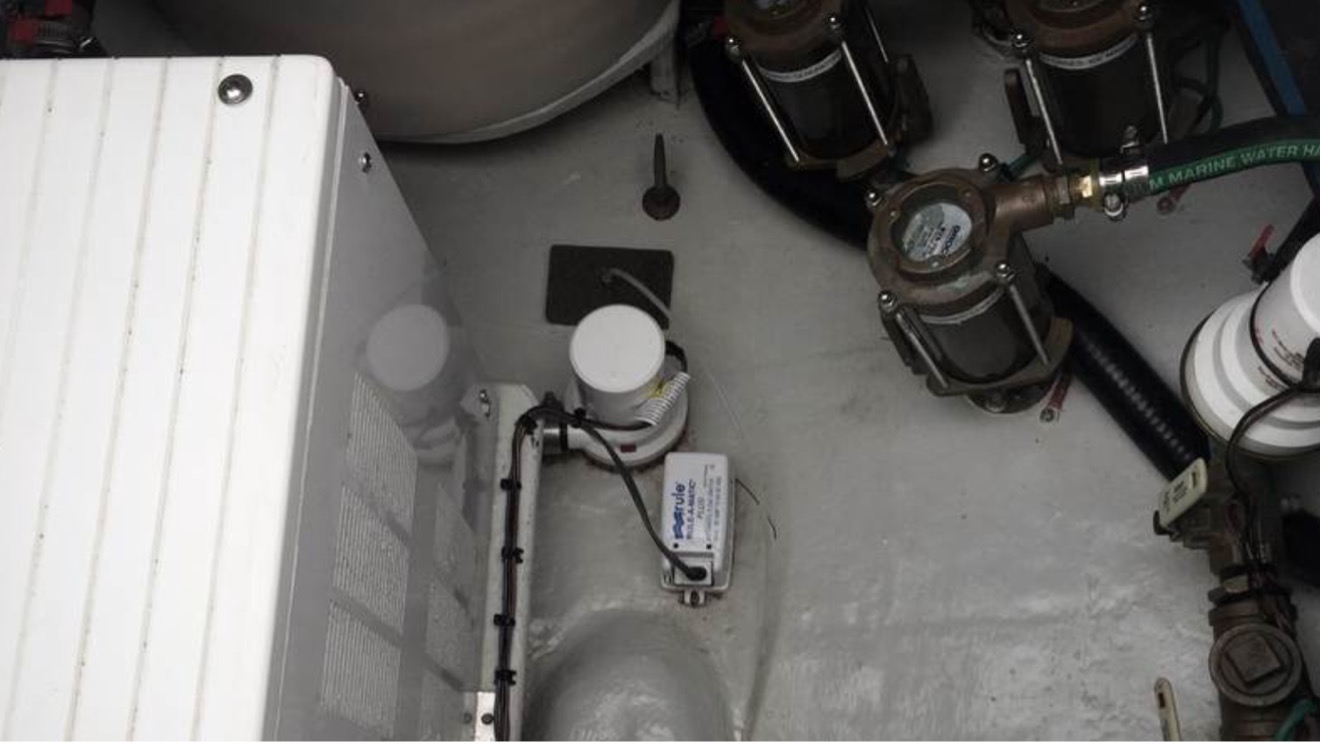Small Efforts Get Big Engine Room Cleaning Results

Putting your boat away with a clean engine room and bilge at the end of the season is extremely important.
A coating of oil, or a mixture of oil and fuel, will dry out over the winter and cake onto all of the bilge systems, fasteners and mechanical equipment that it touches. Then, over the winter, the storage wrap traps the oil fumes giving it months to permeate every part of your boat. It also makes the bilge a lot harder to clean out in the spring, but spring is a time when a clean bilge has particular value.
Next season when the boat first gets running again, if you have a loose fitting that drips fuel, a gasket that’s starting to sweat oil, or something that didn’t get properly tightened, a clean bilge will show the telltale signs of future mechanical problems.
Most major marine cleaner companies have effective bilge cleaning products. We checked out Captain Phab, Starbrite, Natural Marine, West Marine, Shurhold, Yacht Shine but there are more.
There was, however, one particular product that we wanted to try out ourselves. It’s called Micro50 Cleaner and Degreaser and we were intrigued to learn that the approach this product takes to cleaning the bilge; it uses microbes capable of degrading hydrocarbons – they actually eat the oil.
Once you get over the idea that anything could actually eat oil, this concept starts to be quite attractive. Literally billions of microorganisms come in every bottle. Mix them with water prior to use. Then, the dehydrated microorganisms reactivate. An international company called Novozymes produces microbial strains capable of degrading various substances including hydrocarbons. The particular strain in Micro50 is able to organically digest hydrocarbons and converts the hydrocarbons (the oil in your bilge) into oxygen and water that is then released back into the environment.
Micro50 has both TerraChoice and EcoLogo designations. TerraChoice has led the development and adoption of sustainable product standards in Canada and its EcoLogo program is one of the most credible eco-labels in the world. The TerraChoice organization was recently purchased by the independent, not-for-profit ULC Standards (Underwriters Laboratories) as part of its UL Environment program of “green” EcoLogo certification for all of North America.
This seems like a solid foundation for a product used around the water.
So, what we’re saying is that Micro50 actually eats the oil and turns it into oxygen and water. When the food source is exhausted – because your bilge is now sparkling clean – they run out of food and die.

If you’re thinking that this sounds too good to be true, you’re in for a surprise. We wanted to try this out in the real world, so we turned to our friends at Bay Port Yachting Center in Midland, Ontario. They brought a 1980’s twin-engine cabin cruiser out of storage for us. We opened up the centre engine hatch and were not at all surprised to find caked-on grease and oil, plus a little puddle of fresh engine oil that had been spilled in the bilge.
To test this, we made up a mixture of 1 part Micro50 and 5 parts water and put it into a pressure sprayer. We liberally soaked down all of the dirty, oily areas and the puddle of spilled oil.
We expected that the solution would have to be left in contact with the oil for an extended period of time for it to work, but to our surprise, the freshly spilled oil started to break up immediately.
We used a scrub brush on the caked-on grease near the bilge pump to speed up the process. After only an hour, we used a medium pressure hose to spray off the areas we had treated. There is also a phosphate-free surfactant (cleaner) in the Micro50 line of products for stains and dirt the microorganisms don’t eat.
In the boat bilge, the hose left the surface visibly clean, even in places a scrub brush might not reach. At first, the water mixed with the Micro50 made a dark puddle in the bilge, but a short time later, the water was nearly clear; that was a real surprise to us.
We started getting carried away with our success. We sprayed it on the black scum line on the Boston Whaler next to us. The Whaler had a two-inch black hydrocarbon stain all the way around it from oil and exhaust scum from being moored all summer. A fast spray of Micro50 and the black scum line started to run down the hull in dark streaks. With just a little bit of scrubbing, we were able to hose the hull off clean almost immediately.
Micro50 does not remove the lime staining from the water, but it got the hydrocarbons it was designed to attack.
The demonstration was both impressive and convincing. I learned later that the product was really developed for oil spill remediation and “first responders” like the fire department use this to spray the spilled diesel fuel after a truck accident.
If you use care, you can clean spilled oil off concrete, your driveway and most other solid surfaces, too.
If you are a boater who has to fill up using a jerry can, a bit of spilled gasoline and the gas smell can be quickly broken down if you spray on some Micro50.
Putting your boat away with a clean bilge is certainly a good idea and while any of the good quality bilge cleaners will do the job, we were taken with the visible effectiveness of Micro50.